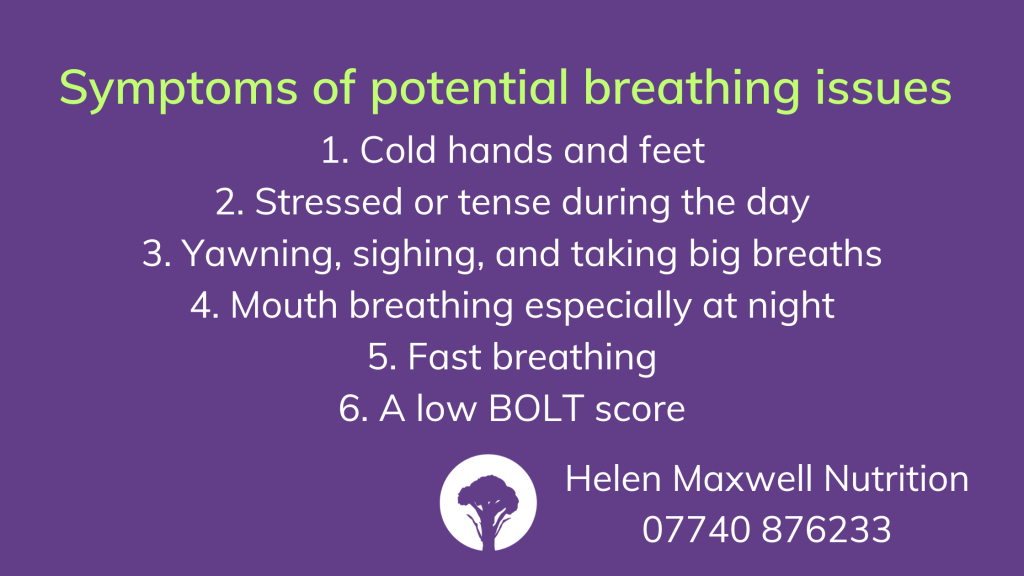Breathing for stress, anxiety and panic.
Anxiety, panic and a racing mind are classed as psychological problems but there is a strong biochemical link. These feelings can be triggered by chemical changes, as well as cause chemical changes. Breathing is connected to our nervous system and we influence our biochemistry with how we breathe. So if we train the breath, we can start to intentionally influence our nervous system through beneficial biochemistry, created with good breathing practices.
Stress of all kinds causes tension in the body. When we are stressed the body responds by tensing up. Tension on the outside means tension on the inside so everything contracts including muscles, tissues, blood vessels and our airways. This constriction impedes the way our body functions and over time this tension affects how we breathe on a day-to-day basis. This is because we build neural pathways for breathing so poor breathing can become the habitual default pattern.
We can train the breath to calm the mind and oxygenate the brain so that we can think clearly. When you bring your attention to your breath this helps to quiet the mind and reduce over thinking. This brings us into the present moment which is usually fine. Anxiety and over thinking is usually about the future (worry) or about the past, perhaps regret or depression over something that has happened. When we quiet the mind we create space between our thoughts so we can question their validity and allow new ideas to surface.
We may not always be able to control sources of stress in our life. We can however work with our breath to interrupt our emotional and mental reaction to the stress. These reactions will otherwise continue to stimulate our stress response and restrict how our body functions.
Remember there are many sources of stress but they all generate the same type of reaction in the body. It doesn’t matter if it’s from toxins, poor food quality, negative emotions and feelings or illness and injury. The body’s physiological response is the same regardless of the cause.
The human body has a great response mechanism called the fight or flight response. This serves us well for acute short bursts of stress. You may have heard of the book ‘why zebra’s don’t get ulcers’. If they survive a predator attack they shiver and shake to process the stress and then return to their baseline parasympathetic state (rest and digest). Unfortunately the pace of modern life tends to generate chronic, low grade persistent stress on a daily basis. Without any kind of stress management our baseline will often reset to a far higher baseline and a constant pervading sense of anxiety. This means our reaction times get shorter and shorter and our fuse trips faster and more frequently. We weren’t built to withstand this continual, chronic stress but nature always has a solution.
The exercises I teach work on your daily functional breathing pattern. I teach you to breathe lightly, slowly and deeply. This increases your tolerance to the build up of carbon dioxide and nitric oxide. These molecules cause your airways and blood vessels to relax and dilate and make the oxygen you breathe in, accessible to the body. This means all of your automatic functions such as blood pressure, heart rate, respiratory rate and digestion can function better.
You can rewire your breath and the neural pathways for breathing to:
- Oxygenate your body and your brain.
- Switch your body to rest and digest / rebuild and repair.
- Interrupt the stress messages from the body to the brain to remind yourself you are safe.
- Increase the resilience you have to stress, by resetting your nervous system on a daily basis.
- Learn how to calm the mind in stress and panic situations, as its very hard to use slow breathing techniques in an emergency.
When you work with the breath to relax the body you stimulate your vagus nerve. This one nerve controls whether you are in fight or flight or rest and digest. Rest and digest is the parasympathetic nervous system which controls all those automatic functions of the body which keep you alive, the autonomic nervous system (ANS). When you rewire your breathing you can begin to work with your ANS rather than hampering it with poor breathing patterns. Enhance and stimulate your health, rather than inadvertently damaging it.
For more information please do drop me an email or give me a call. I offer private breath training but I also have a new course coming soon. Please get in touch as soon as possible if you are interested.



